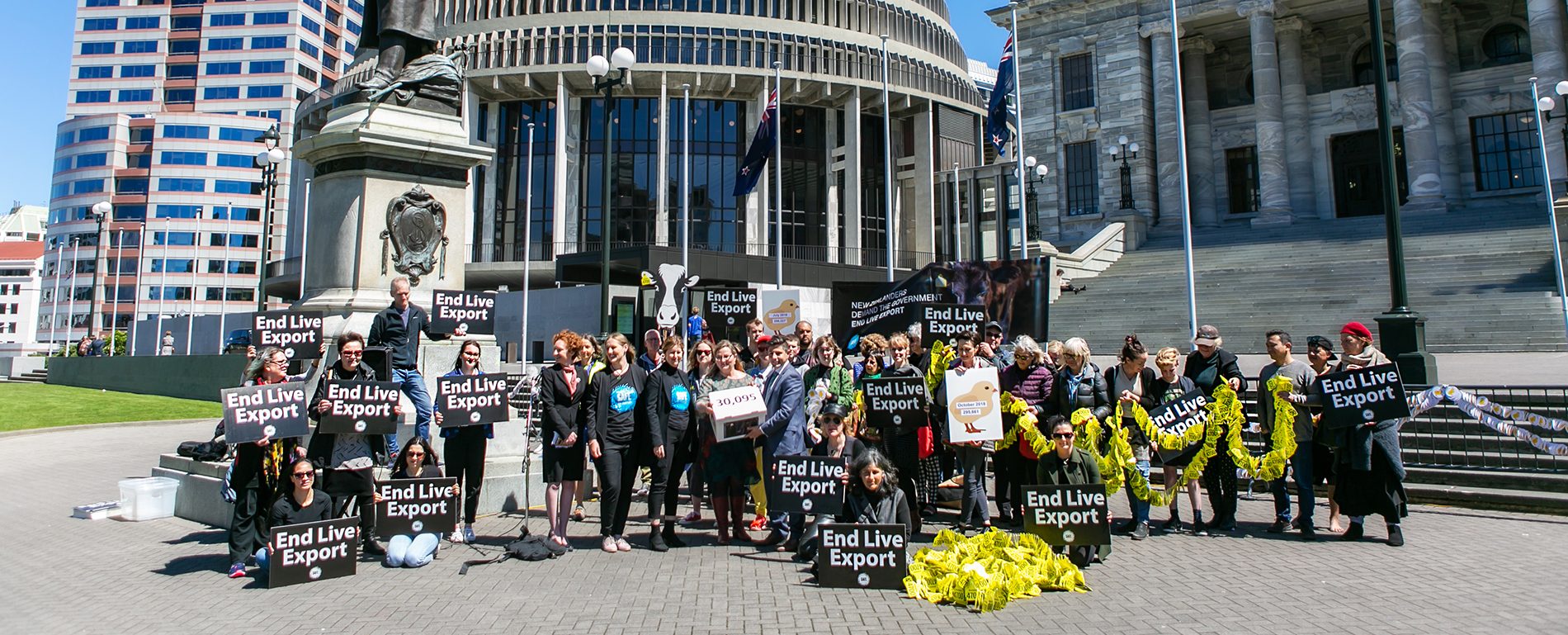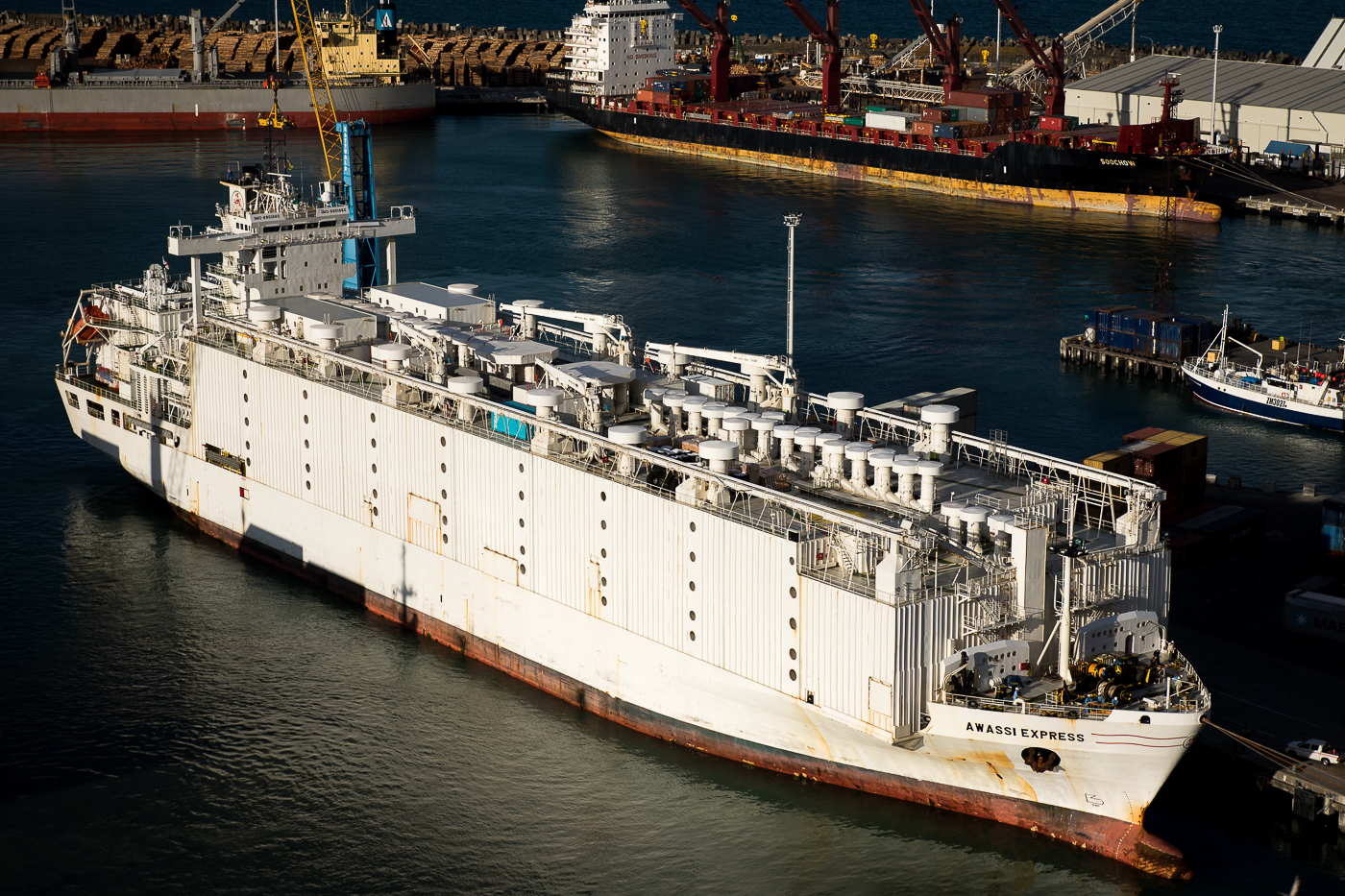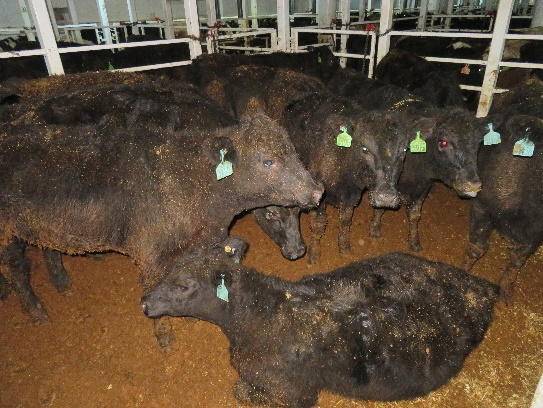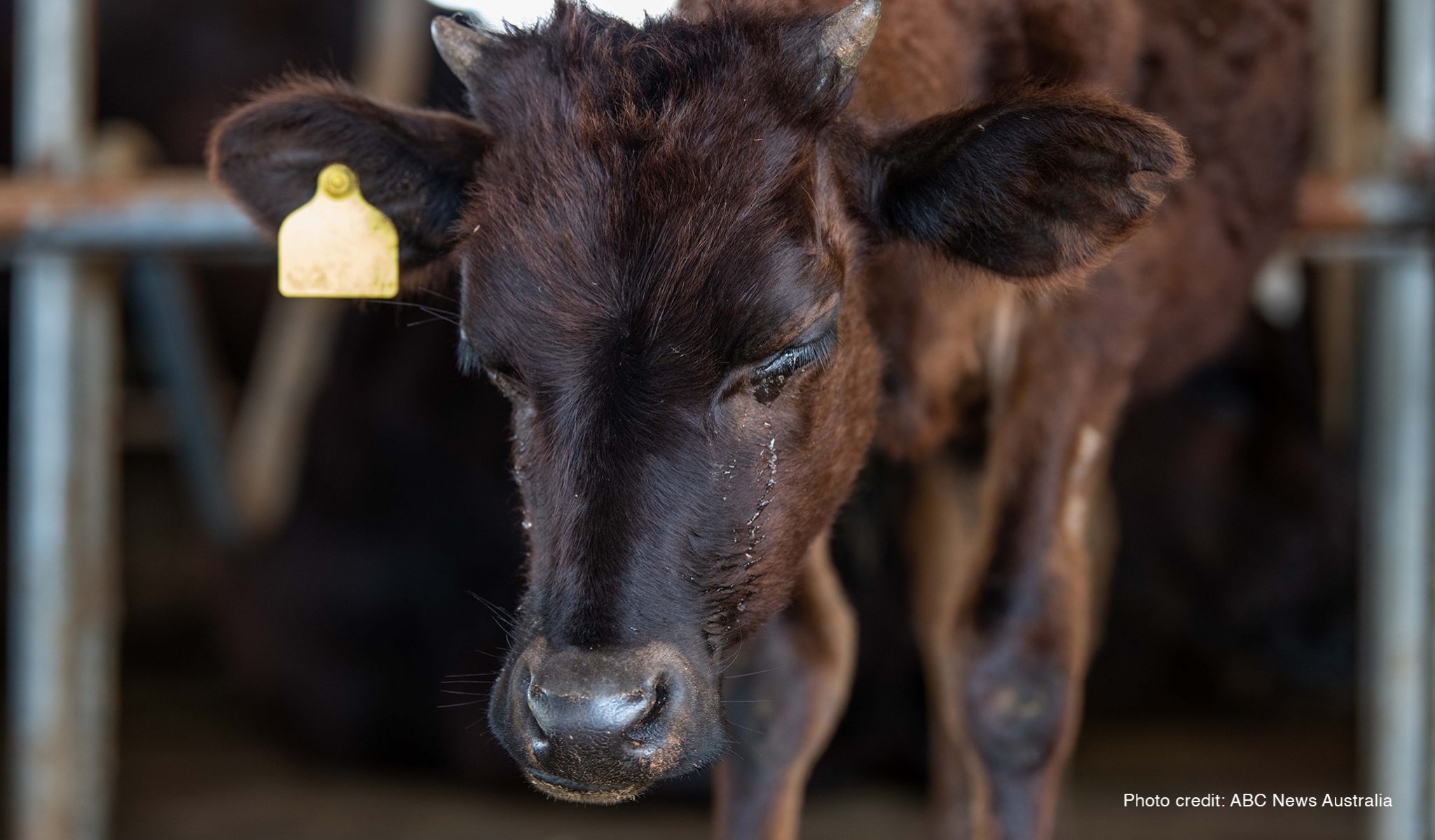
Ten reasons why the ban on live export by sea must be implemented immediately
May 31st, 2021Two years is too long.
In the time it could take to phase out live export by sea, hundreds of thousands more New Zealand animals will potentially have to endure the horror of the live export trade.
Following the Government’s announcement on 14 April that live export by sea will be banned, we now wait for the Minister of Agriculture, Hon Damien O’Connor, to announce the length of the ‘wind down’ period, which he said could be up to two years. Two years is simply too long.
Here are ten reasons why we think the ban on live export by sea should take effect immediately.
1. The voyage is harrowing for the animals
The high stocking densities, heat stress, unnatural diet and rough seas can make the voyage acutely distressing for the animals, with some dying during the voyage. The movement of the ship, especially when large waves slam into the side of the vessel, is highly stressful and may result in injuries. Some animals are shipped while pregnant and some of these give birth on board the ships.
2. Animals spend weeks on board ships
Long distance transport is stressful for animals. Animals transported by sea from New Zealand to China endure a voyage of around 17 days.

3. Live export by sea can be fatal for animals
On 2 September 2020, the Gulf Livestock 1 capsized and sank off the coast of Japan on the way to China with a shipment of New Zealand cows. All 5,867 cows onboard died at sea.
There are many other examples of just how risky live export by sea is, especially when unplanned delays happen.
In 2003, Saudi Arabia rejected a shipment of over 57,000 New Zealand and Australian sheep on board the MV Cormo Express on alleged disease grounds. After two months at sea and with the ship unable to find a port, around 6,000 sheep died on board.
Earlier this year, two ships in the Mediterranean were stranded at sea for over two months, resulting in the deaths of hundreds of cows.
In March 2021, the Suez Canal crisis saw over 20 live export ships delayed, with tens of thousands of animals suffering on board.
4. Live export by sea can be fatal for humans
The Gulf Livestock 1 tragedy resulted in the loss of not only animal, but human, lives. Forty-one of the forty-three crew members, including two New Zealanders, died in this tragedy.
5. Most ships are not designed for live export
Recent analysis undertaken by The Guardian revealed that live export ships are at greater risk of sinking or grounding than standard cargo vessels.
6. Arriving alive doesn’t mean animals don’t suffer
We know that just because an animal is alive this doesn’t mean they have not, and are not, suffering pain and distress. However, the Ministry for Primary Industries (MPI) often cites low mortalities during voyages and during the 30-day post-arrival quarantine period as indicators of a ‘successful’ journey and an acceptable standard of animal welfare.

7. The journey doesn’t end once cows are unloaded from the ship
After arriving in China and leaving quarantine, animals often endure extremely long journeys overland – up to 3,500 kilometres. There is no Chinese code of welfare for transport and no protections for these animals other than the incidental protection of the commercial interests of the owners. The quality of transport is often poor.
8. Destination countries lack minimum animal welfare standards
MPI and exporters repeatedly state that China is a member of the World Organisation for Animal Health (OIE). However, this does little to protect animals in practice. The OIE develops standards, which OIE members are expected to apply, but the OIE but has no enforcement function. China itself lacks minimum animal welfare laws and has little to nothing in the way of enforcement and compliance mechanisms. According to World Animal Protection (WAP), China has no legislation specifically related to the rearing of dairy cattle and no legislative requirement to humanely slaughter animals.
9. New Zealand cows are not used to the extreme climates in destination countries
Information received by SAFE through official information requests refers to some animals being housed in “temperature controlled barns” in China. An expert told SAFE these barns are generally of a poor standard and subject to power outages. The expert also advised that most animals will go into open-sided barns. While these may be adequate in summer, winter temperatures in inner Mongolia, for example, range from around -10 to -25 °C for up to six months and may drop to as low as -40 °C in blizzard conditions. The only protection from winter blizzards are drop-down curtains. Hardly humane conditions for animals who have been raised in more temperate climates on New Zealand farms.
10. We simply don’t know how our animals are treated
MPI has released the documents relating to the 2019 live export review. These documents reveal that before the review, “MPI had limited data regarding the welfare of livestock during the voyage and post-arrival.”
Put simply, this means that our government has been exporting animals without fully knowing how they were treated during the journey and in the destination country. We believe this is completely unacceptable – and we know caring New Zealanders agree.

Given that the decision to ban live export by sea appears to have been prompted by animal welfare concerns and the risk to New Zealand’s reputation, isn’t it time for an immediate ban?
Take action today! Demand an immediate ban on live export today.
